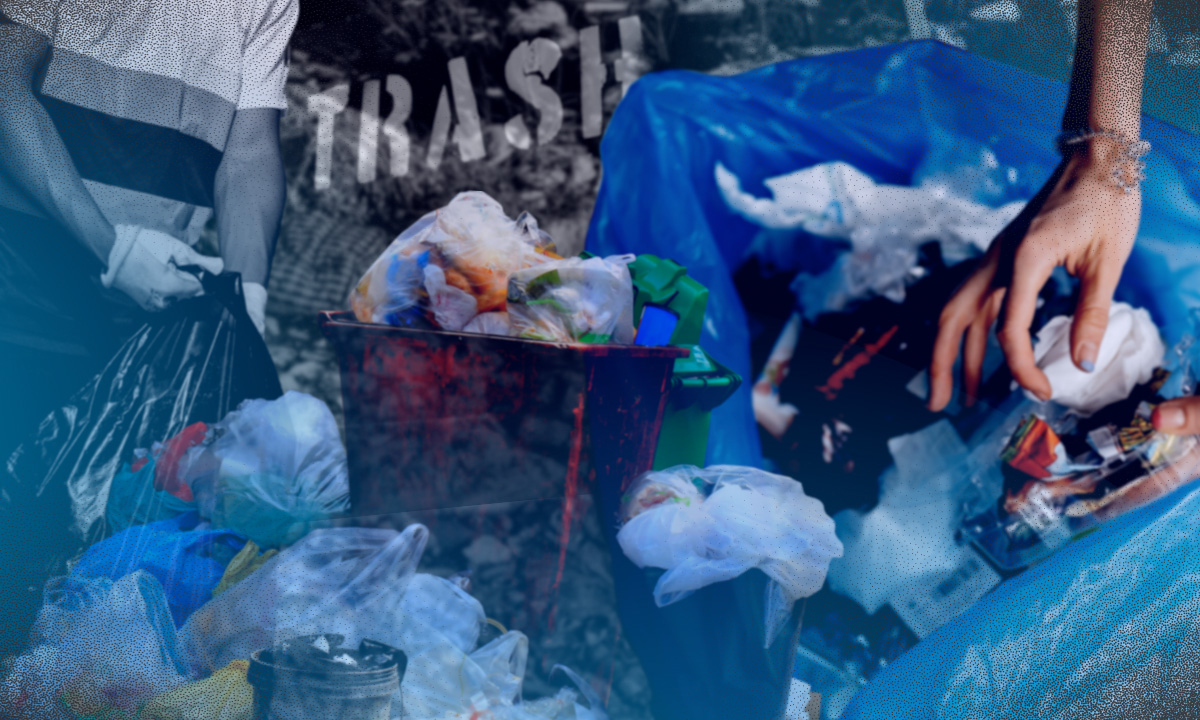MANILA, Philippines—Did you know that single-use plastics are already banned even in government offices, as well as airports and ports in the country?
Commonly used single-use plastics—plastic cups, drinking straws, coffee stirrers, spoons, forks, knives, and labo or thin-filmed plastic bags—are now banned within the premises of several government offices and establishments following separate memorandum circulars issued by various agencies.
In a statement, the international marine conservation organization Oceana lauded the Department of Health (DOH), the Manila International Airport Authority (MIAA), the Philippine Ports Authority (PPA), and the Department of the Interior and Local Government (DILG) for their efforts in enforcing policies that eliminate the use of single-use plastics within their domains.
The directives, detailed in a series of circulars, establish a firm ban on the use of unnecessary single-use plastics across all areas of operation within these agencies.
This ban is not only applicable within the confines of their offices but also extends to major hubs like the Ninoy Aquino International Airport (NAIA) Complex and all ports under the Philippine Ports Authority’s (PPA) management nationwide.
Further broadening the scope of this environmental initiative, the DOH has also explicitly expanded the prohibition beyond its offices and included government hospitals, treatment and rehabilitation centers, and other health facilities across the country.
“We congratulate the leaders of these government agencies for making this huge stride in addressing the plastic crisis. Other government offices should follow this lead to help our environment recover from the mounting problem of plastic waste,” said lawyer Gloria Estenzo Ramos, Oceana vice president.
“Banning single-use plastics in the operations of these agencies will have significant impact not only in reducing plastic pollution but also in instilling behavioral change among their officials, staff, and the general public,” Ramos added.
Controlling Filipinos’ plastic consumption
The government agencies have banned the specified single-use plastic products during meetings, conferences, events, and other functions held in their premises, while promoting participation in the “Bring Your Own Tumbler” initiative among staff and associates.
In addition to employees and staff, the directives further emphasize that the ban on single-use plastics extends to dining services within these facilities, affecting fast food joints, beverage stations, and vendors.
The MIAA has highlighted that restaurants impacted by this rule are encouraged to adopt alternatives to plastic, such as materials derived from paper, grain stalks, sugar cane, or bamboo.
Additionally, the DOH has broadened the ban’s scope to cover not only health care workers and personnel but also patients, their visitors, relatives, caregivers, and companions.
“The health sector has a part in looking after the welfare of all Filipinos by addressing the issue of health care waste at the source, which is more economically and environmentally beneficial,” the DOH circular said.
“The mitigation in the unnecessary use of single-use plastics saves the cost of services and also promotes sustainable waste managementin the health facilities,” it added.
Hospital waste audits conducted by the Health Facility Development Bureau (HFDB) revealed that single-use plastics constitute about 40 percent of the waste produced, with a significant portion being brought in by the patient’s relatives and companions.
Citing data from a 2021 World Bank report, Oceana underscored the distressing level of plastic sachet use in the Philippines, with daily consumption reaching at least 163 million pieces. It also stressed that the country generates 2.7 million tons of plastic waste yearly, with around 20 percent of this waste contributing to ocean pollution.
READ: Filipinos losing war against single-use plastics – DENR
“We hope that this initiative will lead to the same policy that will ban single-use plastics in all local government offices, considering that many of these have passed their own ordinances banning single-use plastics in their towns,” said Ramos.
“More importantly, this should drive the National Solid Waste Management Commission (NSWMC) under the leadership of the DENR to fully implement RA 9003,” she added.
Ecological Solid Waste Management Act
The agencies issued circulars following guidelines from the Ecological Solid Waste Management Act (Republic Act 9003) and the NSWMC Resolution No. 1363, Series of 2020, which directs the Department of the Environment and Natural Resources (DENR) to enforce a ban on single-use plastics across all levels of government and related offices.
READ: Ban on single-use plastics in gov’t approved
Passed in 2001, the Ecological Solid Waste Management Act requires the NSWMC to submit an annual list of non-environmentally sound products and packaging materials.
This includes items that are dangerous throughout their lifecycle or when thrown away, especially single-use plastics. Once identified, it becomes illegal to produce, use, or sell these items.
However, Ramos pointed out that this legal obligation has been neglected for over 23 years.
Section 5(p) of RA 9003 also mandates that the commission must regularly update and publish a list of these environmentally harmful products and materials, following a process that includes public notice and hearings.
“The law prohibits the manufacture, distribution or use of non-environmentally acceptable packaging materials and the importation of consumer products packaged in non-environmentally acceptable materials,” said Ramos.
“With such a list, production of billions of single-use plastics, now the scourge of our oceans and marine creatures, would have halted two decades ago and avoided the irreversible damage to our marine and land resources and the health of our people,” Ramos said.
RELATED STORIES:
Single-use plastics ban now in effect in Apo Reef
Oceana lauds single-use plastic ban in Tubbataha Reefs Natural Park
Single-use plastics now banned in Tacloban City
